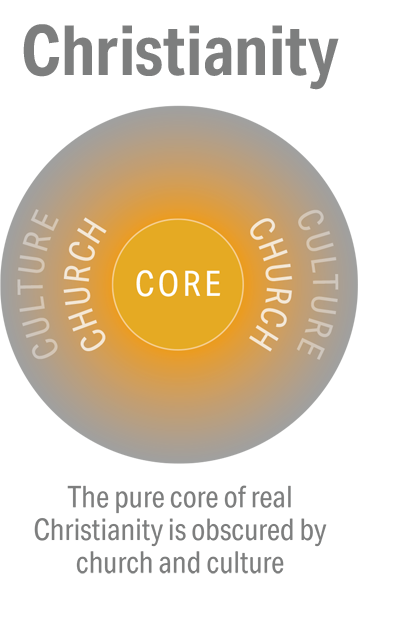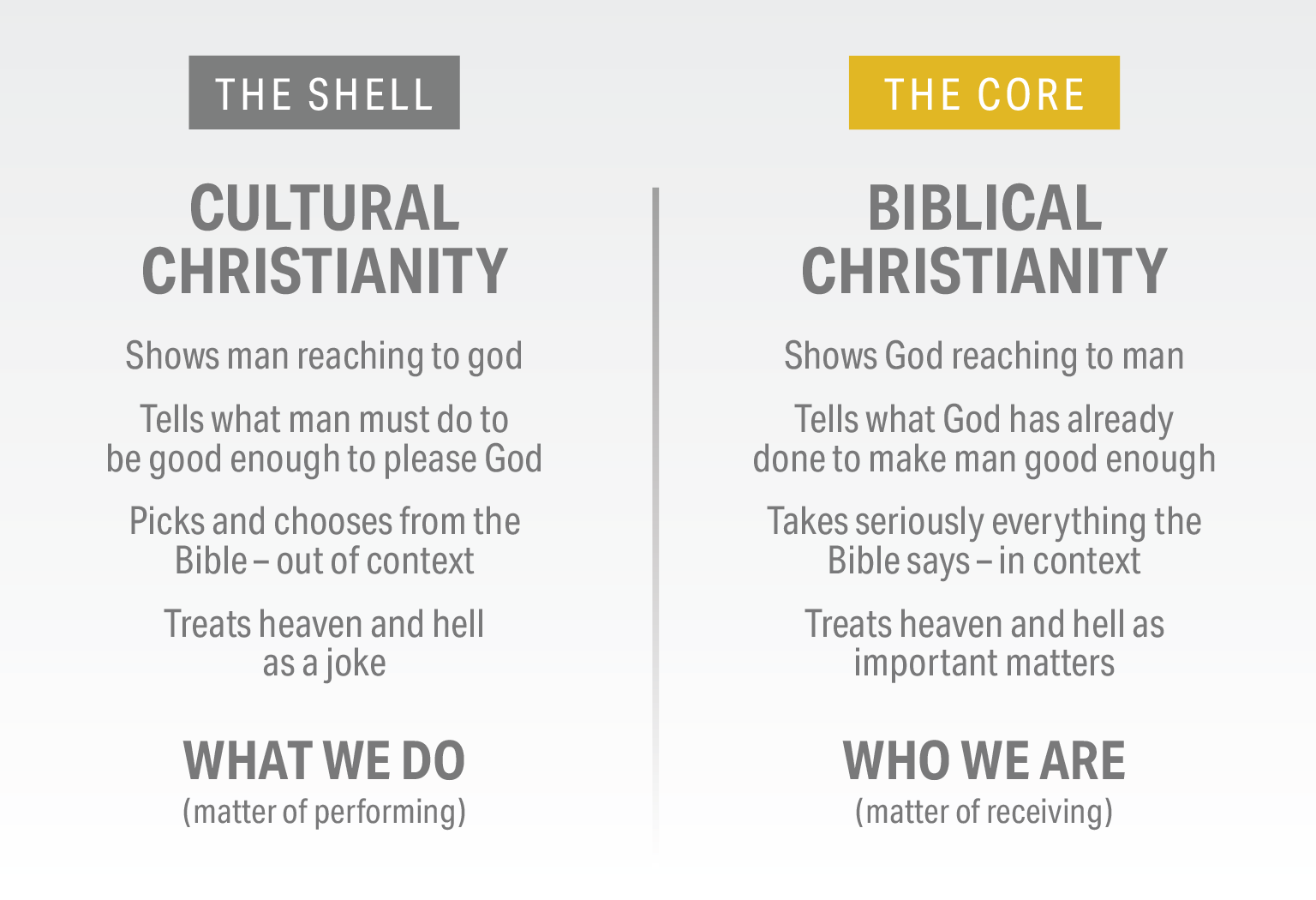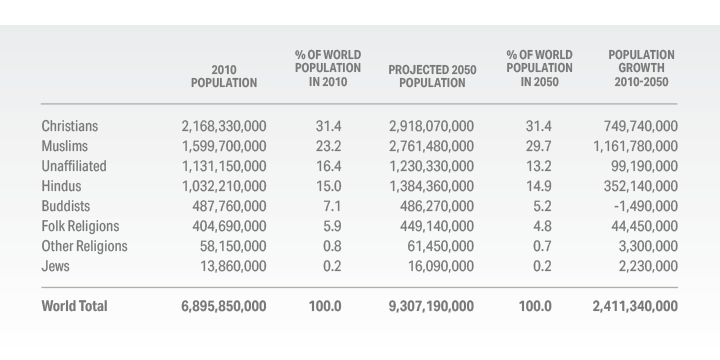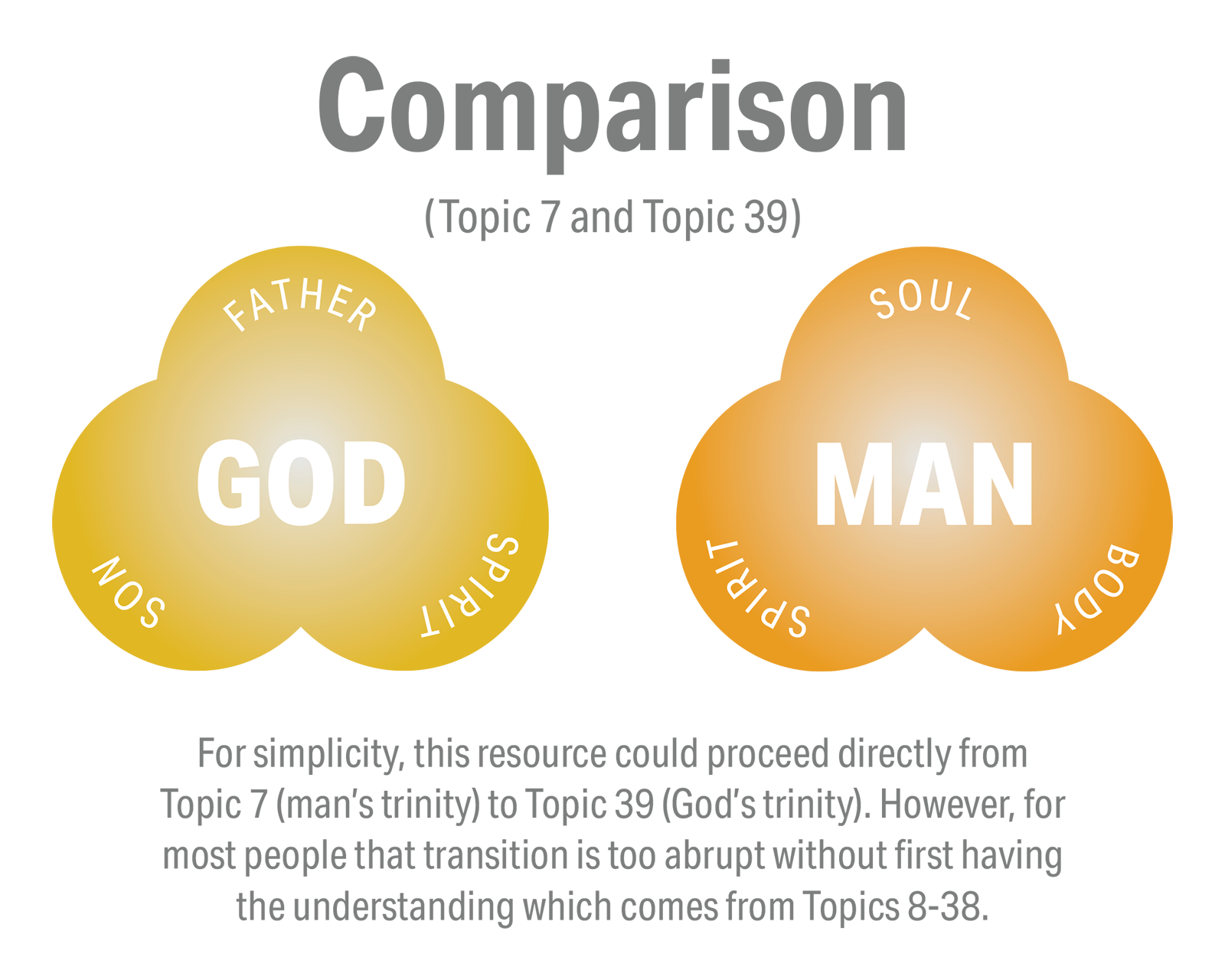EVERYONE IS LIVING BY FAITH IN SOMETHING
The word ‘faith’ arouses a great deal of skepticism, even derision, among many people in today’s secular world. They think faith is for the weak and mindless.
The fact of the matter (as shown in Topics 11-15) is that everyone lives by faith in something... in Allah, in hope for a better life in the next reincarnation, in secular humanism, in Christ, or even faith in good luck.
No one can say he’s acting without faith. This faith – whatever it is – is the underlying assumption for the most important decisions in a person’s life. Everyone (without exception) is betting his life on his faith.
FAITH BY ITSELF IS NEITHER GOOD NOR BAD
Many people regard faith as a thing or a quality. They see it as a religious exercise or a resolute disposition. But that’s not faith.
Faith is really very simple and easy to practice. It’s simply believing with good reason. Just as we see something and know we have sight, so we believe something and know we have faith. Both sight and faith come naturally, without striving, as a consequence of the knowledge we have.
Faith alone is not a virtue. There’s nothing either good or bad about believing or not believing something. True faith comes from evidence revealed; which is a rational matter, not a moral one. Faith is nothing apart from its object. What’s good or bad is not the faith. It’s more about who or what we have faith in. An intelligent person should believe something because of the weight of evidence for it, not merely because he feels like believing it or because someone tells him to believe it.
BELIEF IN God IS THE MOST REASONABLE FAITH
Faith is an important part of everyday life. On the highway, we have faith in the on-coming driver. At the office, we have faith in the accountant. At the restaurant, we have faith in the cook. Without faith, relationships could not function.
But faith is not blind. It rests upon a sense of probabilities resulting from observation, personal experience and information from others.
Because we cannot always get all the facts we want, we’re sometimes forced to make a ‘leap of faith.’ But a sensible person will keep that leap as short as possible by trying to gather and study all pertinent evidence.
The great majority of people who think deeply about the origin, design and purpose of our existence come to the conclusion that there’s a God behind it all. Consequently, most people have faith in God. The questions then become, what kind of God is he and what does he expect of us (see Topics 9-13)?
The remaining Topics in this resource answer those questions. These Topics are summaries of a step-by-step investigation and thought process that’s based on evidence, not on emotion or tradition. (However, the findings are confirmed with great and wonderful emotion when a person meets God personally!)
It’s unreasonable for a person to say he has faith in God and yet go through life without inquiring whether or not he can personally know God and without inquiring about all the personal benefits available from God. This site summarizes the spiritual inquiry, and findings, of a vast number of people who have moved from a general faith in God to a personal relationship with him.
DOUBT CAN HELP DEVELOP FAITH
Doubt can be a healthy step in the development of faith. There’s usually nothing bad about doubt.
In nearly all aspects of life, here’s the normal pattern for a good decision-making process:
- We’re confronted with new information.
- We think about it and question it.
- Often, we have some doubt about the completeness or accuracy of what we hear.
- We determine what additional information is needed before we can solidify our belief and then we set about to get that additional information.
- With good data and careful assessment, we develop faith that something or someone will act in a certain way.
- Then, relying on this faith, we make our decisions.

The greater the quantity and accuracy of our information, and the more rigorous our doubt and questioning, the stronger our faith will be.
In this respect, development of spiritual faith is like development of faith in other areas of life. It grows out of an inner processing of information, with doubt being the catalyst in the process.
What’s dangerous, however, is when a person cares so little about spiritual matters that he doesn’t think about them enough to even struggle with doubt, or when he remains in a position of static doubt for a long time without getting more information.
Failure to process and resolve doubt is not a good way to make decisions. In fact, it’s the worst possible way because it’s decision-making by ignorance and default.
ACCURATE INFORMATION IS ESSENTIAL
It’s true that everyone is living by some kind or degree of faith (belief or disbelief) in God, but the tragedy is that most people lack information and thus are living with either:
Misinformed Belief
OR
Uninformed Disbelief
They may be sincere, but by betting their life on the wrong information, or on insufficient information, most people are missing the gift of new life which God offers.
God doesn’t expect perfection from us, but he does expect us to exercise reasonable diligence in investigating the package of information (Bible) he’s given to us.
Here's a sampling of what the Bible says on this subject.
Hebrews 11:1
Faith is assurance of what lies ahead
Romans 10:14-17
Can’t have faith in something unknown
Romans 1:17
Person who finds new life discovers it through faith
For help, see Topic 29.









 The word ‘Christian’ means different things to different people. This causes communication problems because the word evokes stereotypes and emotions which distort the message. The difficulty is compounded because there are no synonyms and because repeated definition is cumbersome and impractical.
The word ‘Christian’ means different things to different people. This causes communication problems because the word evokes stereotypes and emotions which distort the message. The difficulty is compounded because there are no synonyms and because repeated definition is cumbersome and impractical.











